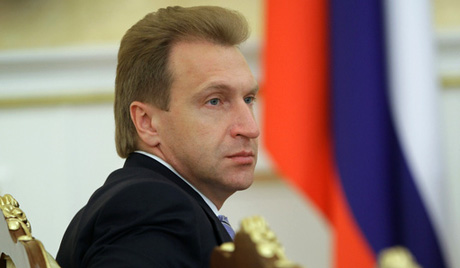
Belarus Sues Russia in the CIS Economic Court
Publication: Eurasia Daily Monitor Volume: 7 Issue: 65
By:

In a precedent-setting move, Belarus is suing Russia in the CIS Economic Court. The case at hand concerns Russian export duties on refined oil products and “petrochemical raw materials” to Belarus. The procedure could open the way for recourse to the CIS Economic Court on other issues and by member countries.
The CIS Economic Court is a deeply dormant institution that happens to be located in Belarus’ capital, Minsk. It is an all-but forgotten legacy from the first institutionalization of the CIS in the early 1990’s, when Minsk had briefly been considered as a second CIS capital and possible host of a number of CIS bodies. The case now initiated by Belarus marks the first time in many years when a CIS member country resorts to this economic court in defending its perceived rights and interests against Moscow.
The CIS Economic Court is essentially an arbitration body, mandated to adjudicate disputes that involve governments of member countries as well as economic bodies of the CIS itself. The 11 member countries are entitled to representation on the court, through judges designated by the respective governments. The court is intended to render an arbitration decision within 30 days from the submission of a complaint. The deadline would be April 25 in this dispute between Minsk and Moscow (Belarus Television Channel One, March 25).
This court’s decisions are supposedly binding, not merely advisory. An appeal procedure is not envisaged. In the event of non-execution of a decision, however, the aggrieved party has the right to ask the Council of Heads of State (the highest political authority in the CIS) to call for the decision to be carried out. An enforcement mechanism does not exist, however. The court’s bylaws also allow the parties to make an out-of-court settlement while the case is pending (Interfax, March 30).
According to Minsk, the CIS Economic Court should also exercise jurisdiction in the Eurasian Economic Community (the dormant EurAsEc, a Moscow-led subgroup of six countries including Belarus) and in the putative Russia-Belarus “union state.” These two subgroups were supposed to create their own economic courts, but failed to do so, thus presumably allowing the CIS Economic Court, by default, to arbitrate disputes within EurAsEc or the Russia-Belarus virtual “union state.”
The CIS Economic Court is also apparently designated as the arbitration instance of the Russia-Belarus-Kazakhstan Customs Union. This trilateral customs union is due to take legal effect on July 1, 2010, and looks far more consequential than those other two subgroups.
The Belarusian justice ministry is the formal plaintiff in the case. It seeks the cancellation of the January 1, 2010 decision by the Russian Customs Service, which introduced export duties on “petrochemical raw materials” and a wide range of petroleum products that are being delivered from Russia to Belarus. The Russian move, with immediate effect from that date, has considerably raised the purchase prices of those products in Belarus, hurting the country’s economy (Interfax, March 26).
Minsk is basing its complaint on multiple agreements on “free trade” and “equal conditions for activity of business entities.” Such agreements have been signed by Russia and Belarus within their nominal “union state” (from 1996 onward), EurAsEc (from 2000 onward), and most recently as part of the Russia-Belarus-Kazakhstan Customs Union. In Minsk’s interpretation, those agreements preclude any export duties in reciprocal trade and would even entitle Belarus to domestic Russian prices on energy supplies, with the unique and temporary exception of Russian crude oil.
According to the Belarusian Justice Minister, Viktar Halavanau, Russia has breached the latest bilateral agreement by introducing export duties on refined oil products and “petrochemical raw materials” delivered to Belarus. Under the January 27, 2010 inter-governmental protocol, Belarus had to accept Russian export duties on crude oil supplies. But, the protocol did not authorize any duties on refined products or petrochemicals (Belapan, April 2).
The affected refineries and petrochemical plants in Belarus are also prepared to seek international arbitration, possibly beyond the CIS framework (Kommersant, March 26).
Ironically, this latest controversy between Moscow and Minsk has coincided with the Day of Unity of the Peoples of Belarus and Russia, which is celebrated annually on April 2 (it marks the 1996 founding of the would-be “Russia-Belarus union state”).
In Minsk, for that anniversary, Russian First Deputy Prime Minister, Igor Shuvalov, sounded dismissive of the host country’s grievance. Apparently affecting ignorance of the CIS Economic Court case, Shuvalov suggested an out-of-court, political discussion of the issue. The proposed forum, however, is singularly ill-suited for such a discussion, let alone decision. Shuvalov asked Lukashenka to take up the issue with Russian President Dmitry Medvedev and Prime Minister Vladimir Putin when they meet in Moscow on May 9 for the World War Two victory celebrations (Interfax, April 2).




